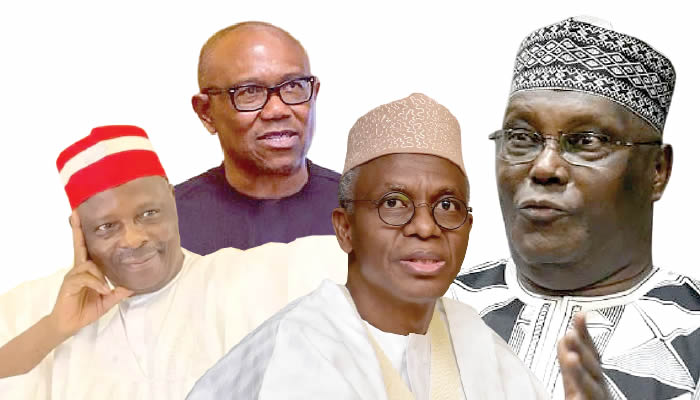Paragraph 1: The Shifting Political Landscape in Nigeria
As Nigeria approaches its 2027 general elections, the political scene is undergoing a dramatic transformation. Despite widespread public discontent stemming from President Bola Tinubu’s economic reforms, the ruling All Progressives Congress (APC) is witnessing a surge in defections from opposition parties. This influx of new members is bolstering the APC’s position and reshaping the political dynamics ahead of the upcoming elections. Initially, it was anticipated that the APC, and President Tinubu in particular, would face significant challenges in future elections due to the hardships caused by the economic reforms. Opposition parties had capitalized on this public sentiment, launching campaigns centered on the need for change in 2027.
Paragraph 2: The Genesis of the Opposition Coalition
The prevailing negative perception of the Tinubu administration, coupled with the public’s economic struggles, provided fertile ground for former President Atiku Abubakar and Mallam Nasir El-Rufai to propose a coalition of opposition parties. Their objective was to unite against the APC and unseat President Tinubu in the next election cycle. The initial strategy hinged on the support of opposition governors, who were expected to leverage their influence and resources within their respective states to strengthen the coalition’s foothold. However, this strategy encountered an unexpected hurdle: instead of joining the coalition, some key opposition figures, notably Delta State Governor Sheriff Oborevwori and the PDP’s 2023 vice-presidential candidate, Ifeanyi Okowa, defected to the ruling APC.
Paragraph 3: Defections and the Coalition’s Resilience
The wave of defections from the Peoples Democratic Party (PDP), Labour Party (LP), and New Nigeria Peoples Party (NNPP) to the APC sent shockwaves through the opposition ranks, particularly the Atiku-led coalition. Despite this setback, key figures like Atiku, El-Rufai, and Peter Obi, the LP’s 2023 presidential candidate, maintain that their mission to unseat Tinubu remains on track. El-Rufai has articulated a strategy focusing on direct voter mobilization, downplaying the significance of gubernatorial support and emphasizing the power of the collective electorate. He argues that the coalition’s success doesn’t hinge on the backing of governors, as the sheer number of individual voters far outweighs the influence of any political office holder.
Paragraph 4: The 2015 Precedent and the Challenges Facing the Coalition
Political analysts draw parallels between Atiku’s coalition and the formation of the APC itself, which successfully ousted former President Goodluck Jonathan in 2015. The APC’s strength stemmed from a merger of various parties, each with its regional strongholds and influential leaders. This broad base of support, combined with a shared opposition to the then-ruling PDP, proved instrumental in its victory. However, Atiku’s coalition faces significant hurdles. Firstly, it lacks the established structure and resources of a registered political party. Secondly, the diverse backgrounds and motivations of its members pose a challenge to establishing a unified platform and coherent ideology. Finally, the question of who will lead the coalition as its presidential candidate remains a potential source of internal conflict.
Paragraph 5: The Coalition’s Perspective and External Assessments
Despite the challenges, key figures within the coalition remain optimistic. Babachir Lawal, a former Secretary to the Government of the Federation, dismisses the significance of the defections, particularly those from the PDP, arguing that they were anticipated and do not threaten the coalition’s core objectives. He emphasizes the grassroots support for the coalition and its understanding of the political landscape. Professor Chris Nwokobia, a political analyst, echoes this sentiment, suggesting it’s premature to judge the coalition’s effectiveness. He believes a formidable front against the APC will emerge, driven by the need to address the perceived failures of the current administration. However, opposing views exist. Buba Galadima, a former National Secretary of the CPC, views the coalition with skepticism, characterizing it as a group of ambitious individuals unlikely to prioritize the public interest.
Paragraph 6: Looking Ahead
As the 2027 elections draw closer, the Nigerian political landscape will undoubtedly continue to evolve. The success of the opposition coalition hinges on its ability to overcome internal divisions, establish a clear platform, and resonate with the electorate. Professor Adele Jinadu, a former president of the International Political Science Association, offers a pertinent observation: the prioritization of public interest over personal ambition is crucial for political stability and the well-being of the nation. The ongoing defections, the coalition’s efforts to consolidate its position, and the APC’s response will all play a significant role in shaping the outcome of the 2027 elections. The ability of the coalition to effectively mobilize voters and present a compelling alternative to the ruling party will ultimately determine its success.


